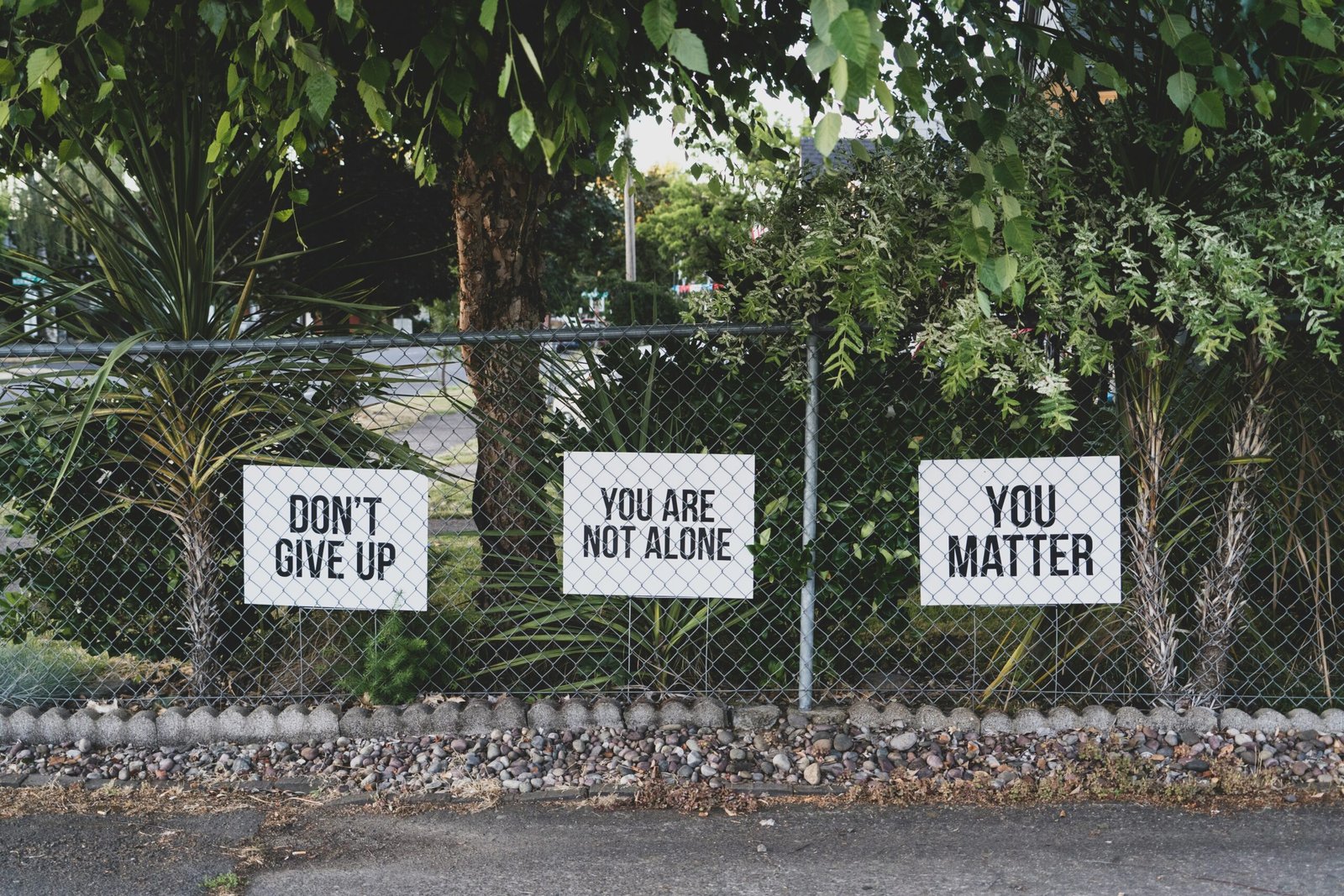
Understanding Election-Related Anxiety
Election-related anxiety is a phenomenon that has gained increasing recognition in recent years, particularly during heightened political cycles in the United States. This type of anxiety pertains to the psychological and emotional distress that individuals experience in response to political events, particularly elections. The nature of these events often leads to feelings of uncertainty, fear, and insecurity, causing a significant impact on mental health. Numerous surveys indicate that a substantial portion of the American population reports elevated levels of stress during election seasons. For example, studies have shown that many Americans feel overwhelmed by the contentious political climate, resulting in heightened instances of anxiety and depression.
As individuals engage with the political landscape—whether through news consumption, social media discussions, or participating in civic activities—many find themselves grappling with feelings of dread concerning various election outcomes. This distress can stem from concerns over the implications of policies, societal stability, or even their personal futures. Research has indicated that these concerns can disrupt daily life, leading to challenges in maintaining relationships and fulfilling responsibilities. The constant barrage of political news can exacerbate these feelings, as individuals may find it difficult to escape the pervasive nature of election-related discussions.
More information Conflict of Interest Sparks Resignation at California’s Mental Health Agency
Conflict of Interest Sparks Resignation at California’s Mental Health AgencyMoreover, the societal polarization observed during recent elections further compounds the emotional toll on individuals. The sense of division can mandate individuals to navigate complex interpersonal relationships with family, friends, and colleagues who may hold divergent political beliefs, adding another layer of stress. As this cycle of anxiety affects numerous aspects of life, it becomes increasingly crucial for individuals to recognize these feelings. Acknowledging election-related anxiety is the first step towards coping effectively and mitigating its psychological consequences, thus enhancing overall well-being in a politically charged environment.
Signs and Symptoms of Election Anxiety
As elections approach, many individuals report experiencing various forms of election-related stress. Understanding the signs and symptoms of election anxiety is crucial for recognizing when such feelings may become overwhelming. One of the primary indicators of anxiety is physical symptoms, which can manifest as an increased heart rate, insomnia, and muscle tension. These reactions are natural responses to the heightened emotional atmosphere surrounding elections, driven by uncertainty and concern for the future.
In addition to physical aspects, emotional symptoms prominently feature in election anxiety. Feelings of irritability, fear, and persistent fatigue can serve as warning signs that stress levels are rising. Such emotions can significantly affect an individual’s daily life, making it harder to focus on tasks or engage in activities that were once enjoyable. It is important to acknowledge that these responses are valid and quite common during politically charged times.
More information Empowering Veterans: Exploring Holistic Approaches to Mental Health Freedom
Empowering Veterans: Exploring Holistic Approaches to Mental Health FreedomBehavioral changes often accompany these symptoms, as individuals may begin to avoid news coverage or limit social interactions to reduce their exposure to election-related discussions. This avoidance can lead to increased isolation, which might exacerbate feelings of anxiety and uncertainty. Recognizing these behaviors can be instrumental in identifying the onset of election anxiety. Many may find themselves overwhelmed by the nonstop media cycle, leading to a sense of helplessness regarding the political landscape.
It is essential to remember that experiencing these symptoms does not signify weakness or inadequacy. Acknowledging and legitimizing these feelings helps individuals realize they are not alone in their experiences. Seeking support, whether through conversations with friends or professional outlets, can provide much-needed relief amidst the anxiety of electoral processes.
Expert Tips for Managing Stress During Elections
As elections can evoke a wide range of emotions, it is crucial to adopt effective strategies to manage election-related stress. Mental health professionals recommend several techniques that can help individuals regain control over their well-being during this turbulent time. One such strategy is the practice of mindfulness. Mindfulness involves focusing on the present moment and acknowledging thoughts and feelings without judgment. Engaging in mindfulness practices, such as meditation or deep-breathing exercises, can alleviate anxiety symptoms and foster a sense of calm.
More information Psychological Resilience and Spiritual Practices: A Path to Personal Transformation
Psychological Resilience and Spiritual Practices: A Path to Personal TransformationAnother significant component of stress management during elections is setting boundaries around news consumption. With constant updates and commentary flooding various media channels, it is easy to become overwhelmed. Experts suggest establishing specific times to check news updates while avoiding social media platforms that can exacerbate anxiety. By limiting exposure to distressing information, individuals can create a healthier psychological space.
Physical activity is another highly effective tool for mitigating election-related stress. Regular exercise releases endorphins, which are chemicals in the brain that promote feelings of happiness. Even a short daily walk can help clear the mind and reduce overall tension. Incorporating activities such as yoga or dance can also be beneficial as they not only engage the body but also provide an emotional outlet.
Connecting with supportive communities can enhance resilience during the election season. Engaging with friends, family, or support groups can provide a sense of belonging and understanding. Sharing experiences with others facing similar challenges can foster camaraderie and diminish feelings of isolation.
More information Exploring Behavioral Health Services and Psychiatry in Washington D.C.
Exploring Behavioral Health Services and Psychiatry in Washington D.C.Case studies illustrate the success of these strategies; individuals who have implemented mindfulness practices and limited news consumption reported significant reductions in anxiety levels. By adopting these expert-recommended techniques, individuals can effectively cope with the stress of the electoral process and maintain their mental well-being.
Finding Support and Resources
As election-related stress intensifies, it is crucial to prioritize mental health and seek support when necessary. Various resources are available to help individuals cope effectively. First and foremost, mental health hotlines can provide immediate assistance. These helplines are typically staffed by trained professionals who can offer guidance, emotional support, and coping strategies. Many organizations maintain 24/7 support lines, ensuring that help is always just a call away.
Therapy is another valuable resource for managing election anxiety. Licensed therapists specialize in cognitive-behavioral techniques, which can greatly assist individuals in reframing their thoughts surrounding the election and developing healthier coping mechanisms. Therapy can be conducted in person, over the phone, or through secure online platforms, allowing flexibility in accessing care.
More information Coping with Election Anxiety: Strategies for Managing Stress During Political Turmoil
Coping with Election Anxiety: Strategies for Managing Stress During Political TurmoilCommunity support groups can also be beneficial. These groups often bring together individuals who share similar concerns, creating a safe space for dialogue and understanding. By participating in such forums, individuals can share their experiences and learn from one another, which can significantly reduce feelings of isolation. Community centers, online networks, and local mental health organizations frequently host these meetings, making it easier for individuals to find support in various forms.
Encouraging open discussions about mental health is essential, especially during stressful times such as elections. By sharing personal experiences, individuals can foster a culture of empathy and collective coping. It can be empowering to know that others are facing similar challenges, thus promoting a sense of belonging and resilience. Overall, reaching out for help is a sign of strength that can greatly enhance mental wellbeing during challenging periods.Utilizing available resources can pave the way for healthier coping strategies and foster a supportive community atmosphere.


